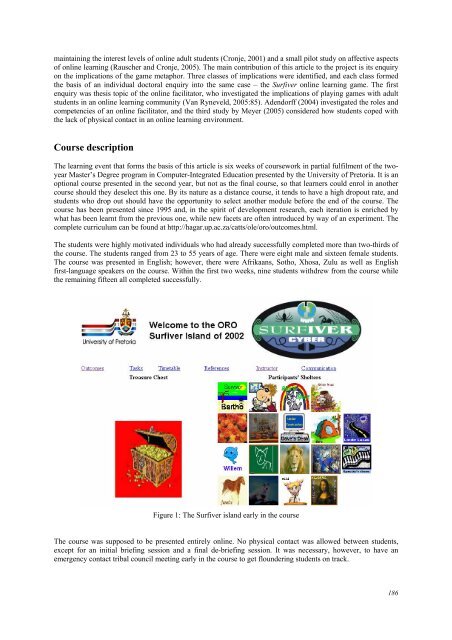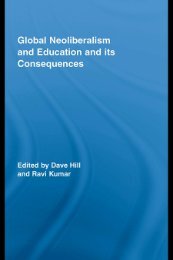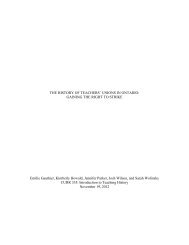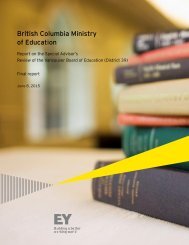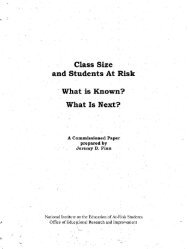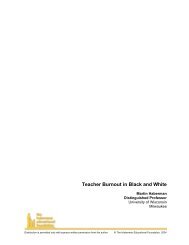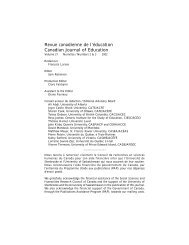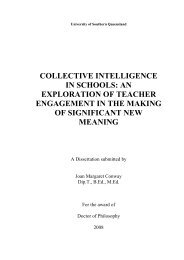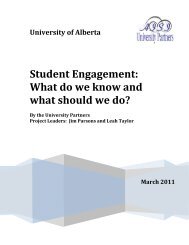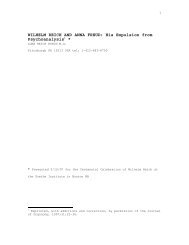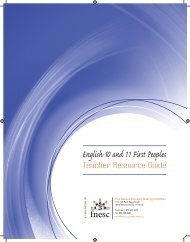October 2006 Volume 9 Number 4
October 2006 Volume 9 Number 4
October 2006 Volume 9 Number 4
You also want an ePaper? Increase the reach of your titles
YUMPU automatically turns print PDFs into web optimized ePapers that Google loves.
maintaining the interest levels of online adult students (Cronje, 2001) and a small pilot study on affective aspects<br />
of online learning (Rauscher and Cronje, 2005). The main contribution of this article to the project is its enquiry<br />
on the implications of the game metaphor. Three classes of implications were identified, and each class formed<br />
the basis of an individual doctoral enquiry into the same case – the Surfiver online learning game. The first<br />
enquiry was thesis topic of the online facilitator, who investigated the implications of playing games with adult<br />
students in an online learning community (Van Ryneveld, 2005:85). Adendorff (2004) investigated the roles and<br />
competencies of an online facilitator, and the third study by Meyer (2005) considered how students coped with<br />
the lack of physical contact in an online learning environment.<br />
Course description<br />
The learning event that forms the basis of this article is six weeks of coursework in partial fulfilment of the twoyear<br />
Master’s Degree program in Computer-Integrated Education presented by the University of Pretoria. It is an<br />
optional course presented in the second year, but not as the final course, so that learners could enrol in another<br />
course should they deselect this one. By its nature as a distance course, it tends to have a high dropout rate, and<br />
students who drop out should have the opportunity to select another module before the end of the course. The<br />
course has been presented since 1995 and, in the spirit of development research, each iteration is enriched by<br />
what has been learnt from the previous one, while new facets are often introduced by way of an experiment. The<br />
complete curriculum can be found at http://hagar.up.ac.za/catts/ole/oro/outcomes.html.<br />
The students were highly motivated individuals who had already successfully completed more than two-thirds of<br />
the course. The students ranged from 23 to 55 years of age. There were eight male and sixteen female students.<br />
The course was presented in English; however, there were Afrikaans, Sotho, Xhosa, Zulu as well as English<br />
first-language speakers on the course. Within the first two weeks, nine students withdrew from the course while<br />
the remaining fifteen all completed successfully.<br />
Figure 1: The Surfiver island early in the course<br />
The course was supposed to be presented entirely online. No physical contact was allowed between students,<br />
except for an initial briefing session and a final de-briefing session. It was necessary, however, to have an<br />
emergency contact tribal council meeting early in the course to get floundering students on track.<br />
186


